Beachcombing is my absolute favourite hobby, and it’s something that can be done in all weather. The best time of the year to go beachcombing is actually during the winter months, or after stormy weather, as rough seas mean lots of finds! Winter also means fewer people are there to find them. Here are our top beachcombing tips so you can have a successful beachcombing adventure.
What to expect from our article
What is beachcombing?
Beachcombing is when a person/persons go to the beach intending to collect items from it.
What can you collect while beachcombing?
You can collect many things while beachcombing, from shells to driftwood, seaglass, and even trash. There are groups of people who organise beach cleanups, but you could also go on your own. Lots of waste ends up on our beaches, so it is always good to collect some while beachcombing, even if it’s just a little bit.
Who can go beachcombing?
Beachcombing is a hobby that anyone can take part in. The best part about beachcombing is that you don’t need any particular skills or expensive tools to do it.
There may be some precautions you need to take, as some beaches may not be easily accessible, or they can even be a little treacherous, but most beaches are perfectly safe to beachcomb, and anyone can take part.
What should I take with me?
You can take as little or as much as you want. If you plan to stay at the beach for a while, you might want to make sure you have everything you need at hand.
- A rucksack is a handy item to take beachcombing, as you can take along some lunch and a drink and even store your precious finds without too much difficulty.
- A smaller bag for collecting finds.
- Sensible footwear, I don’t know how many times I have visited the beach in the past and regretted my choice of footwear, especially when clambering over rocks.
- Spare/warm clothing, especially during the winter months, is nothing worse than having to call off a treasure-hunting trip because it was too cold.
- Coins, while most beaches are usually free to visit, some charge to park and not all of them have card machines installed. Keeping some loose change in the car just in case will help avoid these situations.
- Sun cream, even on a cloudy day, you can get sunburnt, so it is a good idea to keep some sun cream in your bag. There is no protection from the sun’s rays while you are out on the beach, and if you are like me, you never know you have been burned until later on in the day, and by then, it’s already too late.
- A phone in case you get into trouble and need to call for help and take photographs of your finds.
- A watch, keeping track of the time is so important while beachcombing, and the reason for this is to keep an eye on the tide times. It may seem like the tide takes forever to go out, but it can come in quickly too, and the last thing you want is to get cut off by the tide.
- The tide app is super important for safety reasons and so you don’t make a wasted trip; if the tide is in, you won’t get on the beach.
When should I go?
The time of day is important when taking a trip to the beach; too early or too late could result in a wasted trip. Using a tide app like Anytide is the best way to find the right time to go beachcombing. Once you find out where the tide is, you need to work out roughly two hours after the highest point; this will give you the optimum time to go beachcombing. You only ever want to go beachcombing when the tide is out and never when it is in or coming in. Remember, safety first.
The best time of the year to go beachcombing is in the winter, especially after a storm. Stormy weather tends to bring out the best finds because the seas are so rough. One particular beach we go to at Lyme Regis has an old Victorian dump overlooking it. Rough weather exposes the cliffs where the dump is contained, spilling the contents onto the beach. Winter also means fewer people will be there to find the treasures we desperately seek, so there is always more to be found at this time of the year.
Where should I go?
Where you go to beachcomb can be entirely dependent on the tide times. My favourite beach is about two hours away, so it’s not always possible to visit, especially if the tides are early in the morning or late at night, as travelling can be difficult.
What should I look out for?
There are lots of things to look out for on the beach. Some things you can take with you and others you should leave where they are, but just because you can’t take them with you doesn’t mean you can’t enjoy them. Just remember to put them back where you found them. Other things to look out for are;
- Seaglass
- Driftwood
- Shells
- Fossils
- Mini Beasts
- Seaweed
- Coins
- Jewelery
- Hag stones
- Marbles
- Bottle stoppers
- Sharks teeth
- Seapottery
Safety first
If there is any advice in my beachcombing tips list that you listen to, it should be this safety section. I cannot emphasise how important it is that you put your safety first. While most beaches you visit are safe, some of them can be treacherous, and people have been seriously hurt when they did not put their safety first.
Tide app – While missing out on a day of treasure hunting can be a real letdown, getting trapped by an incoming tide or cut off from the beach exit can cost you your life. Never risk going onto the beach when the tide is coming in. It may seem like you have lots of time, but it can come in a lot quicker than you realise.
There is a local beach nearby that has an island (Sully Island) that is only accessible at low tide. They have had to install a crossing to let people know when it is safe to cross. So many people have crossed over to the island and become stranded, leaving them needing to be rescued by the coast guard. Some people have even lost their lives trying to swim back to shore.
Cliffs – Standing directly under, climbing up, or hammering at a cliff face can be extremely dangerous. Rough weather, rough seas, and coastal erosion mean that cliff faces are damaged, making them unpredictable. They can collapse at any time. Trust me; you do not want to be under it when it decides to give way. Tons and tons of rock can fall at any time, which means it can be fatal if you are underneath it.
Footwear – As I’ve said, further up footwear is essential while going beachcombing, especially if you visit beaches with old coastal dumps, as you never know what can be hidden in them. A pair of flip-flops will not stand a chance against a piece of glass or metal sticking up out of the sand waiting to be stepped on.
Sand might seem abrasive when it’s on your hands, but it can also cause a slipping hazard when combined with wet rock. Selecting shoes with a decent grip is essential for beachcombing, especially on those beaches with rocks and sand.
War paraphernalia – beachcombers are generally less likely to come across these types of objects sitting on the surface as they are usually found using a metal detector. However, it is also not uncommon to find things like old bombs, hand grenades, and even bullets washed up on the beach. It is essential that if you do find these types of items, you do not remove them from the beach. You must inform the coast guard, who will take all the appropriate steps to dispose of them safely.
Coastal refuge sites – While I haven’t come across anything during my time beachcombing that could be hazardous to health, that doesn’t mean there aren’t any to be found. I did find a bottle once with some very potent contents.
The bottle stated it contained furniture polish, I rinsed the bottle, and this honey-like liquid came out; it smelled horrible, and I got some of it on my hand, which burned my skin, which is why we recommend wearing gloves while poking around in these areas. This isn’t just to protect you from broken glass, but also to protect you from any irritants that may be lurking inside any old bottles.
We have strict safety measures that we have to adhere to during the manufacturing process; they didn’t have these back in Victorian times. They also used highly toxic ingredients, ingredients that we are no longer allowed to use, so it’s a case of better to be safe than sorry.
I hope you have found our beachcombing tips helpful and have a great time out on your next adventure hunting for treasures.

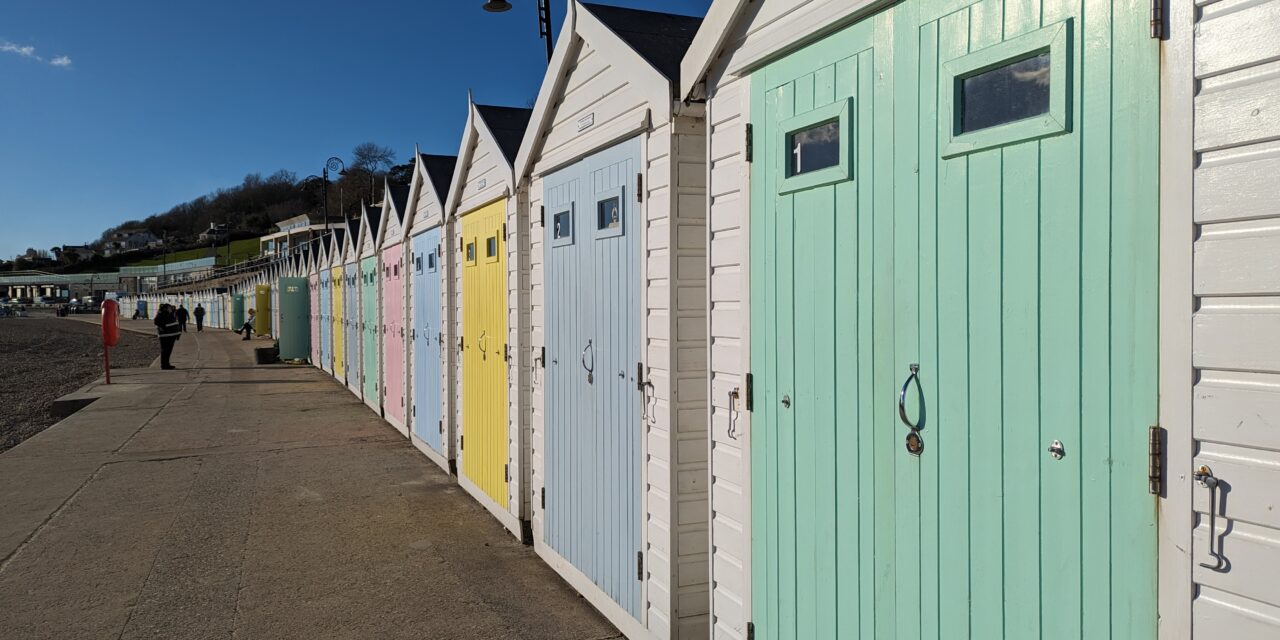
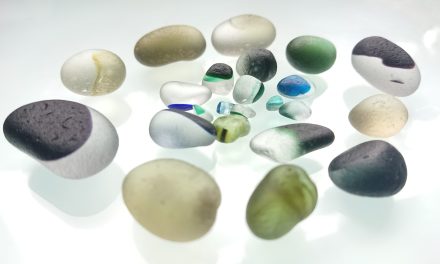
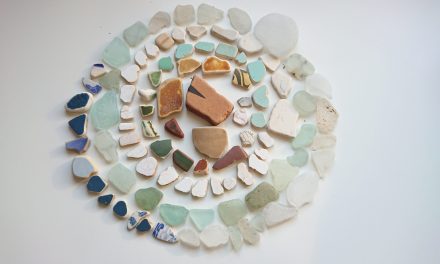
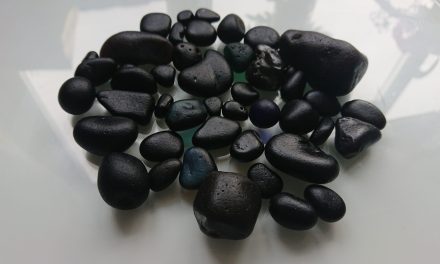
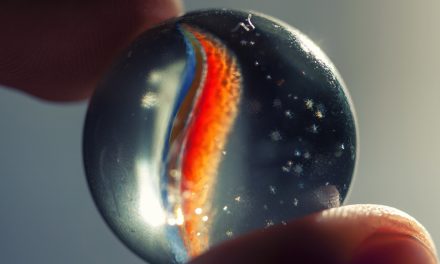



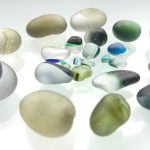

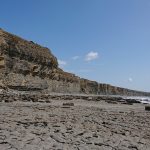
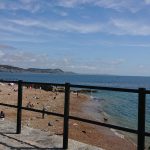
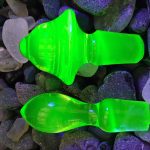



Trackbacks/Pingbacks